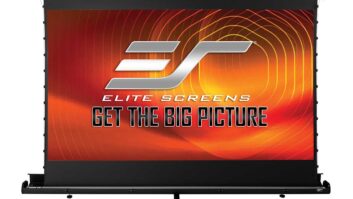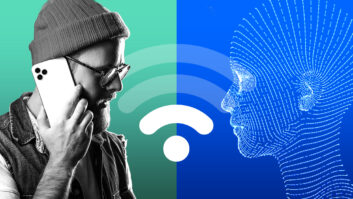 The Connectivity Standards Alliance (CSA), formerly known as the Zigbee Alliance, an organization of hundreds of companies creating, maintaining, and delivering open, global standards for the Internet of Things (IoT), has announced Matter — the interoperable, secure connectivity standard for the future of the smart home.
The Connectivity Standards Alliance (CSA), formerly known as the Zigbee Alliance, an organization of hundreds of companies creating, maintaining, and delivering open, global standards for the Internet of Things (IoT), has announced Matter — the interoperable, secure connectivity standard for the future of the smart home.
The proliferation of connected objects continues to change the way we live, work, and play. From homes to offices, factories to hospitals, connected objects enable us to experience our environments in cohesive, interactive ways. Yet, for too long, disconnected platforms and disparate development paths have caused confusion for consumers and complicated processes for developers and innovators. Smart objects should be reliable, secure, and work together — this is the shared vision behind Project Connected Home over IP (CHIP), now known as the new standard, Matter.
“With millions of Zigbee devices in market, adding Zigbee to Echo and eero products has made it easier for customers to connect their smart devices, and for device makers to build Alexa-connected devices customers want,” said David Shearer, Vice President, Amazon Smart Home. “As a long-time contributor to the Alliance, we’re excited to see the organization continue advancing work that benefits device manufacturers and makes smart home more accessible for customers.”

Amazon, Apple, Comcast, Google, SmartThings, and the Connectivity Standards Alliance came together in 2019 to develop and promote this new standard, joined by fellow Alliance board member companies IKEA, Legrand, NXP Semiconductors, Resideo, Schneider Electric, Signify, Silicon Labs, Somfy, and Wulian. Now, there are more than 180 Member organizations of all sizes, across a range of business categories, and over 1700 Member individuals participating in bringing the Matter specification, reference implementations, testing tools and certification programs to life.
Matter is the unified IP-based connectivity protocol built on proven technologies, helping connect and build reliable, secure IoT ecosystems. This new technology and royalty-free connectivity standard enables communications among a wide range of smart devices. Matter is also a seal of approval, assuring that any object built on this standard is reliable by nature, secure by design, and compatible at scale.
Key technology attributes
Matter makes it easier for device manufacturers to build devices, and to ensure they are compatible with smart home and voice services such as Amazon’s Alexa, Apple’s HomeKit with Siri, Google’s Assistant, SmartThings, and others. The first specification release of the Matter protocol will run on existing networking technologies such as Ethernet (802.3), Wi-Fi (802.11), and Thread (802.15.4) and for ease of commissioning, Bluetooth Low Energy.
Other key attributes include:
- Simplicity – Easy to purchase and use. Simplifying connected experiences.
- Interoperability – Devices from multiple brands work natively together. Providing greater compatibility.
- Reliability – Consistent and responsive local connectivity.
- Security – Maintaining secure connections. Robust and streamlined for developers and users.
- Flexibility – Matter makes it easy for users to set up and control their devices with multiple ecosystems simultaneously.
With Matter, consumers and businesses can choose the brands they want in their smart home or commercial building and be confident they will work seamlessly. Homeowners, and especially those living in a smart home with multiple devices like smart locks, thermostats or smart speakers, can add new devices with a Matter mark using a simple setup code to connect their home as one. Businesses, particularly those that rely on connectivity, can count on one network to keep their operations running smoothly.
 Key for developers is that Matter isn’t only a specification — it also offers an open-source reference implementation in parallel. This drives tangible benefits for developers including: faster time to market, reduced reliance on single-vendor stacks, improved quality since they can access multiple use cases to test against, and increased security with full transparency into the community’s ability to identify and commit patches.
Key for developers is that Matter isn’t only a specification — it also offers an open-source reference implementation in parallel. This drives tangible benefits for developers including: faster time to market, reduced reliance on single-vendor stacks, improved quality since they can access multiple use cases to test against, and increased security with full transparency into the community’s ability to identify and commit patches.
“Signify, the world leader in lighting and a long-term leader in the Alliance, has always believed that open ecosystems need to be bigger than one company,” said George Yianni, Head of Technology Philips Hue, on behalf of Signify. “We have embraced Zigbee and API integration from the beginning and are excited to be a driving force in the creation of Matter and the future of multi-brand interoperability for our consumer smart lighting products of both Philips Hue and WiZ.”
Products with the Matter mark connect securely with more devices, more reliably than ever. The Matter mark will serve as a seal of approval, taking the guesswork out of the purchasing process and allowing businesses and consumers alike to choose from a wider array of brands to create secure and connected homes and buildings.
Availability
In early May, the feature-complete base specification was approved by the Matter Working Group. Reaching this milestone gives Members a definition of the major features to build out the open-source implementation and test the specification.
With this, the project is currently on track to see first devices through certification in late 2021, depending on manufacturer go-to-market plans. Devices targeted for launch include lighting and electrical (e.g., light bulbs, luminaires, controls, plugs, outlets), HVAC controls (e.g., thermostats, AC units), access controls (e.g., door locks, garage doors), safety and security (e.g., sensors, detectors, security systems), window coverings/shades, TVs, access points, bridges, and others.
Members poised to be early adopters of Matter include: Amazon, ASSA ABLOY, Comcast, Espressif Systems, Eve Systems, Google, Grundfos Holding A/S, Huawei, Infineon Technologies, LEEDARSON, Legrand, Nanoleaf, Nordic Semiconductor, NXP Semiconductors, Qorvo, Resideo, Schlage, Schneider Electric, Signify, Silicon Labs, SmartThings, Somfy, STMicroelectronics, Texas Instruments, Tuya Smart, ubisys, Wulian, and Zumtobel Group.
Companies interested in accessing the specification and building devices with Matter can join the Connectivity Standards Alliance.
For more information, visit www.buildwithmatter.com.
See also: Samsung Electronics Expands Its Galaxy Upcycling Program













